The strange life history of chicory coffee! Why would anyone drink this kind of "substitute coffee"?
Professional coffee knowledge exchange more coffee bean information please follow the coffee workshop (Wechat official account cafe_style)
Vietnamese coffee is known to be something that people with diabetes need to stay away from. In New Orleans, the United States, there is also a famous milk coffee, bitter taste, and the addition of quite a different raw material, chicory (Chicory, also known as bitter herb). If coffee is related by blood, regardless of origin, Vietnamese coffee and New Orleans chicory coffee should belong to the same clan.
It is impossible to find out who found chicory as a coffee substitute. However, in the 17th century, Europeans became infatuated with coffee, but because of the limited quantity of goods and the ban of the Holy see, many people tended to choose a more economical approach, which was to mix various alternatives such as barley and wheat and mix coffee drinks. Among them, some people found that the taste is very similar to the original coffee, the most perfect substitute is the root of chicory.
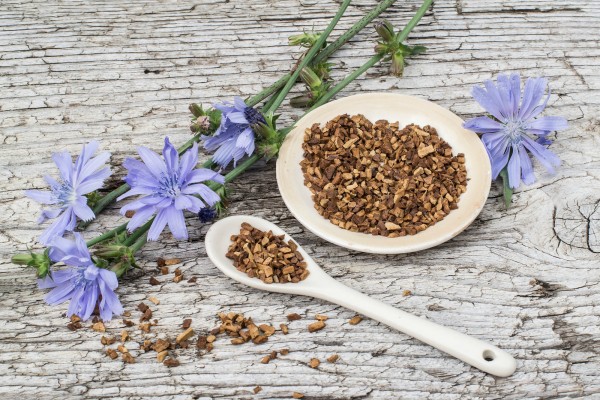
Chicory is one of the common coffee substitutes.
However, the popularity of chicory coffee depends on the European war 200 years ago and a celebrity, the French emperor Napoleon. Napoleon implemented the continental blockade policy in order to ban the shipping trade between Britain and Europe. The problem was that the French themselves liked coffee, and most of the coffee beans were imported from Britain, which dominated maritime trade at that time, so Napoleon encouraged people to use chicory, which could be propagated in large quantities at home, as a coffee substitute.
Interestingly, after the war, some French people really fell in love with this mixture of chicory and real coffee because it was as cheap as deep-roasted coffee. According to food historian Erica J.Peters in his work Appetites and Aspirations in Vietnam:Food and Drink in the Long Nineteenth Century, until the middle of the 20th century, chicory coffee was still widely popular in the local public, and this blend does have a certain charm, in addition to a dark color, but also has a unique bitter Zhu Guli flavor.
Coffee culture spread from France to colonies outside Europe and America at the beginning of the 19th century, and the most well-known example is Vietnam. Due to the favorable climate and soil, Vietnam has also begun to grow a large number of coffee beans. However, what is more mysterious is why chicory coffee became popular in New Orleans on the other side of the world. Some people once thought that the civil war had caused a shortage of coffee beans and made it necessary for people to switch to cheap alternatives. This view has been refuted by some scholars because chicory is also imported. A more plausible argument stems from the fact that the price is affordable and the taste is unique, especially the latter. Before 1803, Louisiana was a French dependency like Vietnam, and there were already a large number of French immigrants living there, so it makes sense for this coffee blend, which suits the taste of the French public, to take root in New Orleans.
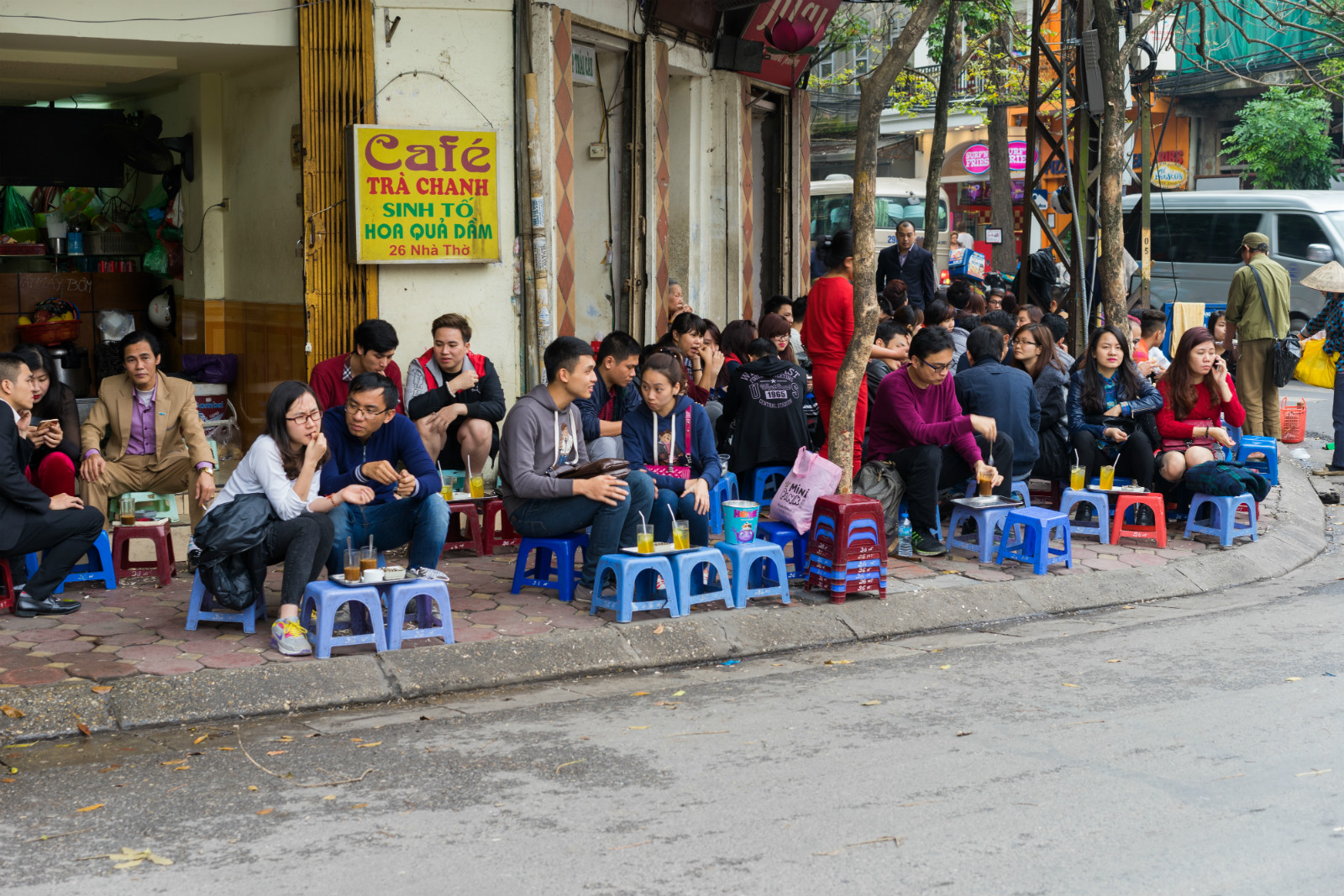
Coffee culture spread from France to colonies outside Europe and America, including Vietnam, at the beginning of the 19th century.
Chicory Coffee itself is inextricably linked to the history and culture of New Orleans, but now it is more closely related to Vietnamese-Americans living there. In the case of a coincidence, chicory coffee has now become a staple of many American Vietnamese coffee shops.
Before the Vietnam War, the circulation of this chicory coffee was limited to Louisiana, where New Orleans was located. And like the cycle of cause and effect, New Orleans' chicory coffee has become a bestseller thanks to the Vietnamese who fled to the United States. After the Vietnam War, the number of immigrants from Vietnam and many Vietnamese refugees drifting to the United States increased. In American food culture, one of the things that make Vietnamese least accustomed to is American coffee (as the French have long criticized American coffee, Vietnamese are quite French in drinking coffee). As a result, they finally found this dark and bitter coffee blend in New Orleans. Because of the small community of Vietnamese in the United States, the news soon spread.
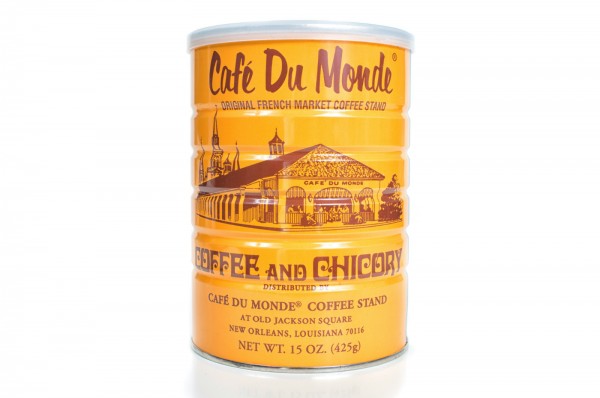
Coffee é du Monde's chicory coffee, which is the representative of New Orleans, was once a favorite of the Vietnamese.
The Coffee Coffee in New Orleans belongs to Caf é du Monde, which was founded in 1862. Orange canned chicory coffee is not only the representative letter of New Orleans, but also once became a favorite of the Vietnamese. It is this long-established brand of French coffee that ties New Orleans to Vietnam. Louise McKinney, author of New Orleans:A Cultural History, once said: "Caf é du Monde hired a large number of Vietnamese workers at that time, but the management found that these Vietnamese workers would send a large number of the company's coffee products back to Vietnam for relatives and friends. "Caf é du Monde never thought the coffee would be so popular on the other side of the world, and it made them think about expanding their business in Asia.
Vietnamese food writer Andrea Nguyen also mentioned in an interview: "the coffee they brought back to their hometown tastes very strong and bitter." Because Cafe é du Monde added chicory to the coffee powder, the Vietnamese who worked there tasted it and recommended it to the people around them, and soon became a well-known coffee all over the country. "
Of course, there are obvious differences in drinking habits between Vietnamese coffee and American Vietnamese coffee. In fact, although inherited from France, Vietnam now has a unique coffee culture. Whether in Hanoi or Ho Chi Minh City, locals love a deep-roasted coffee with condensed milk and ice cubes. This unique taste of coffee in the world is itself a very symbolic cultural blend.
A cup of coffee from bitter to sweet, going through the years, is just witnessing the evolution of history.
END
Important Notice :
前街咖啡 FrontStreet Coffee has moved to new addredd:
FrontStreet Coffee Address: 315,Donghua East Road,GuangZhou
Tel:020 38364473
- Prev
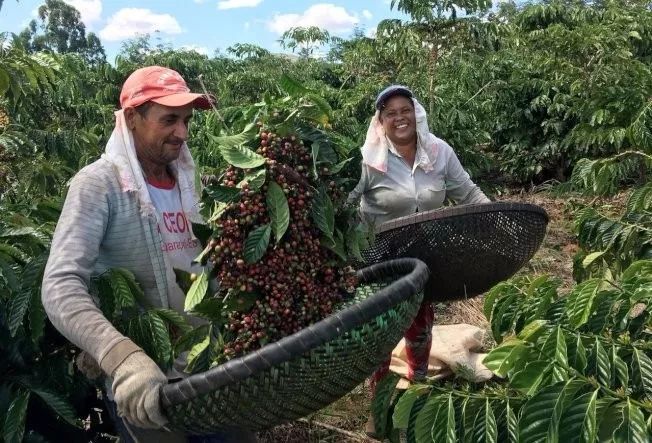
Analyze the coffee value chain. Who earns the most in a cup of coffee? Coffee farmers earn less than 1%?
Professional coffee knowledge exchange more coffee bean information Please follow the coffee workshop (Wechat official account cafe_style) as coffee is becoming more and more popular among consumers, it would be better to become a coffee farmer at present. However, Arabica coffee beans cost just over $1 a pound on the New York Intercontinental Exchange (ICE), less than half what they were five years ago. The cheap price of coffee beans causes many coffee farmers to change.
- Next
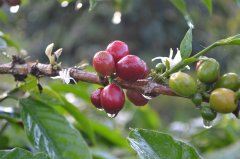
Ethiopian coffee exports will hit a record high in 2019 / 20
Professional coffee knowledge exchange more coffee bean information please follow the coffee workshop (Wechat official account cafe_style) Essex Broadcasting Company news on June 7, the Commissioner of the United States Department of Agriculture in Addis Ababa said that Ethiopian coffee exports are expected to reach 240000 tons in 2019 / 20, a record high. Reuters quoted the U.S. Department of Agriculture as saying that Ethiopian coffee production will rise in 2019 / 20.
Related
- What grade does Jamaica Blue Mountain No. 1 coffee belong to and how to drink it better? What is the highest grade of Blue Mountain coffee for coffee aristocrats?
- What are the flavor characteristics of the world-famous coffee Blue Mountain No. 1 Golden Mantelin? What are the characteristics of deep-roasted bitter coffee?
- Can I make coffee a second time in an Italian hand-brewed mocha pot? Why can't coffee be brewed several times like tea leaves?
- Hand-brewed coffee flows with a knife and a tornado. How to brew it? What is the proportion of grinding water and water temperature divided into?
- What is the difference between Indonesian Sumatra Mantinin coffee and gold Mantinin? How to distinguish between real and fake golden Mantelin coffee?
- What does bypass mean in coffee? Why can hand-brewed coffee and water make it better?
- Unexpected! Ruixing Telunsu lattes use a smoothie machine to foam milk?!
- % Arabia's first store in Henan opens into the village?! Netizen: Thought it was P's
- Does an authentic standard mocha coffee recipe use chocolate sauce or powder? Mocha Latte/Dirty Coffee/Salty Mocha Coffee Recipe Share!
- What is the difference between Vietnam egg coffee and Norway egg coffee? Hand-brewed single product coffee filter paper filter cloth filter flat solution!

